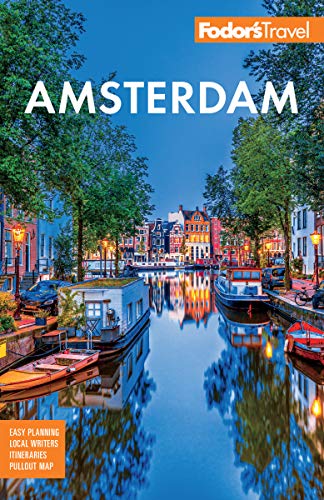What to Know About Marijuana in Amsterdam
Whether you follow a "When in Rome" mind-set and it's your first time lighting up or you consider yourself an herbal connoisseur, tourists of all ages visit coffeeshops. Some merely window-shop out of curiosity, while others aim to sample as much as possible. That said, the Dutch themselves are reported to smoke less pot than most other European populations, and Amsterdam's coffeeshop industry caters to international patrons. If you do decide to indulge in Amsterdam's infamous weed scene, there are a few things you should know.
The Selection
Most coffeeshops offer a robust array of weed and hash, sold anywhere from €5 to €40 per gram (5 grams per person) to patrons over 18 with a valid ID. Don't hesitate to describe your dream high to the dealer, and he (or, rarely, she) will try to accommodate you.
Handling Your High
Be wary: some Dutch-sold marijuana is potent enough to blow the socks off the most hard-core pothead. If cannabis is not your usual drug of choice, don't feel you have to play cool; ask questions of the staff and use caution whatever your medium—joint, bong, vaporizer, or brownie. And while it may seem fun fantasy in the moment, cycling while stoned is highly ill-advised.
If you do overindulge, try not to panic. Find a quiet place, take deep breaths, and remember that the discomfort will pass. Sometimes consuming something sweet will help to soften the high. Remember, you won't be arrested for smoking pot in Amsterdam, so ask for help or call 112 if needed.
The Deal on Dealing
Amsterdam is home to an estimated 160 coffeeshops, but that number is decreasing. As of January 2014, coffeeshops have to be at least 250 meters from high schools, which has led to several closures. A 2007 law that prohibits the side-by-side sale of marijuana and alcohol has forced proprietors to dry out their bars to retain coffeeshop licenses. What's more, since July 1, 2008, Amsterdam, like many other cities, has become smoke-free; smoking tobacco is banned from interior public spaces, including coffeeshops, and is only allowed in designated areas. Confusingly for visitors and locals alike, it is legal to smoke a pure joint (rolled with just weed or hash) in a coffeeshop, but not in bars, restaurants, and clubs.
Currently, it's acceptable to sell small amounts of marijuana via the "front door" of a coffeeshop where the customer enters. However, the "back door" through which the product arrives is linked to the illegal world of the mysterious wholesale supplier. Technically speaking, selling marijuana is officially prohibited, but the government has barely bothered to enforce this legislation—the buzzword here is "decriminalized." Thanks to the Dutch Opium Act of 1976, an important distinction is made between hard drugs and soft drugs (weed being soft).
Staying Legal
Throughout 2011 and 2012, a movement was afoot to require a membership card, or wietpas, for those wishing to partake of the offerings of Amsterdam’s famed coffeeshops—anything and everything from marijuana to hashish and ganja cookies. That law, which would have excluded tourists from coffeeshops and was never supported by Amsterdam officials, was voted down in 2012. Happily, things will stay as they are, and visitors will keep the same rights as the Dutch (and the city will keep its cannabis revenue). For the latest regulations on cannabis dos and don'ts, check Amsterdam's official website (www.iamsterdam.com).
The old laws on the books currently allow up to 5 grams of marijuana and several other cannabis-laden comestibles (pot brownies, space cakes, ganja cookies) to be dispensed at a licensed venue to anyone over 18. It also allows possession of up to 30 grams by individuals, solely for personal use. Marijuana must be purchased on regulated premises (coffeeshops) and either used on the spot—since 2008, most coffeeshops have designated "smoking rooms," where you can enjoy your spliff or joint—or taken home. It is also legal to smoke in the street or in the park.
Where Dutch drug policy differs from the rest of the world is that Dutch law makes a distinction between hard drugs and soft drugs. Hard drugs such as heroin and cocaine are considered highly addictive and a dangerous threat for people's health, and so it is illegal to sell them. A recent spate of tourist deaths from white heroin sold as cocaine on the streets has made the authorities ever more vigilant, and electronic billboards on the city's major squares warned tourists to stay away from street dealers. The signs are now gone, but you'd be wise to heed the advice. Drug addicts, however, are not seen as criminals but as patients, so they don't risk imprisonment simply for possession of hard drugs. Cannabis may be psychologically addictive but not physically; thus, soft drugs are tolerated in Dutch society.
Magic Truffles
Only two decades after the Dutch government condoned the sale of marijuana and hash under the Opium Act of 1976, another "soft drug" came onto the scene: psilocybin. More commonly known as magic mushrooms, or paddos, psilocybin was legal until December 2008, when it was banned after some fatal accidents with visitors. Although paddo consumption in those cases was never actually proven, the ban still stands and smart shops can no longer sell the mushrooms, either fresh or dried, but they can sell Magic Truffles, as that particular subterranean fungi seems to slip through a loophole in the law.
Also still allowed are other "natural" high-producing substances—peyote, aphrodisiacal herbs and oils, and herbal XTC. If you choose to take any of these products, use common sense: not only are many of them illegal if carried outside the Netherlands, they can produce strong—and not necessarily pleasant—judgment-impairing hallucinations.




